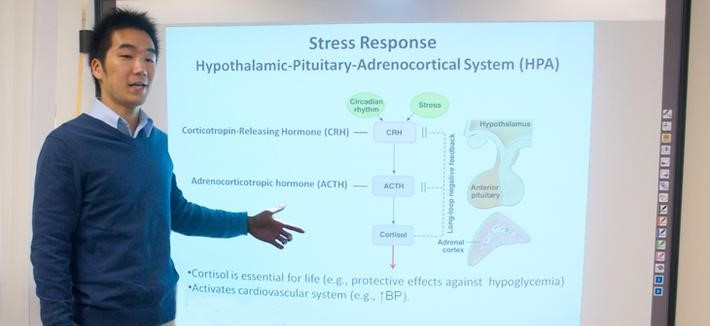Research Education & Training

Grantsmanship, Scientific Writing and Oral Speaking Workshops
The Office of Graduate and Postdoctoral Studies hosts several workshops and seminars to advance both graduate student and postdoctoral scholar research education and training elements. Grantsmanship workshops for the NIH F series grants (i.e. F30/F31/F32) and K award series are available to students and postdoctoral fellows. Additionally, seminars to enhance scientific writing for manuscript preparation and oral speaking are available throughout the academic semesters.
The goals of grantsmanship, scientific writing and oral communication skill development workshops are to increase core competencies of the trainee to more effectively convey their science to a diverse body of target audiences. Whether the goal is to present recent data at scientific conferences, assemble novel ideas into fundable grant proposals, prepare a manuscript for submission to peer-reviewed journals or communicate research to industry partners or government agencies, these workshops can help to provide and bolster key fundamentals to enhance abilities to best convey knowledge to your listeners and readers.
Responsible Conduct of Research Seminars
Responsible Conduct of Research (RCR) training is available to graduate students, postdoctoral scholars and undergraduate researchers engaged in research within the Medical School. The training sessions are provided once per semester and meet the requirements of NIH NRSA T and F mechanisms grant award requirements. Attendance is not limited to solely trainee fellows, but open to other senior level scientists engaged in research within the Medical school.
Goals of RCR education and training are to:
- Develop, foster, and maintain a culture of integrity in science
- discourage and prevent unethical conduct;
- empower researchers to hold themselves and others accountable to high ethical standards
- a increase knowledge of, and sensitivity to, ethical issues surrounding the conduct of research by researchers with diverse backgrounds
- improve the ability to make responsible choices when faced with ethical dilemmas involving research
- provide an appreciation for the range of accepted scientific practices for conducting research
- inform scientists and research trainees about the regulations, policies, statutes, and guidelines that govern the conduct of U.S. Public
- Health Service-funded research and promote compliance with the same
- promote a career-long positive attitude toward research ethics and the responsible conduct of research.